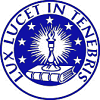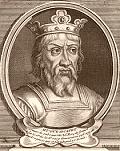
 | The German Huguenot Museum in Bad Karlshafen |
 |
History - 1. How the Huguenots got their name1. How the Huguenots got their name ConfederatesThe term "Huguenot" is usually said to be derived from the German word "Eidgenossen" (eiguenot - confederates). In 1520 in Geneva the word was used to designate the early adherents of the Reformation, and later the followers of John Calvin. Term of abuse for conspiratorsIn France the word "Huguenot" first appeared as a term of abuse in a letter written in Périgueux (in Guyenne) in 1551. The iconoclasts were described as "this vile race of Huguenots". The derogatory word Huguenot was also applied to the Protestants in the area of Tours on the Loire, when in 1500 the Catholic party led by the Guise family claimed that the Huguenots had conspired to abduct the young king Francis II from his castle in Amboise. A ghost called Hugo Hugues Capet (941-996) A contributory factor for the appearance of this term may have been a legend related in the town of Tours on the Loire. Legend had it that the ghost of the French king Hugo Capet flied (?) through the streets at night in the vicinity of the Hugo Gate. As the Protestants held their services in secret at night, the townspeople called them "little Hugos" conspiring against the state and the Catholic Church. An honourable name for French ProtestantsWhatever is origin, from 1560 on "Huguenot" was the word used to designate the Protestants of France. In the course of time the word "Huguenot" gradually lost its negative connotations and became an honourable name. |
© The German Huguenot Museum 2026 |